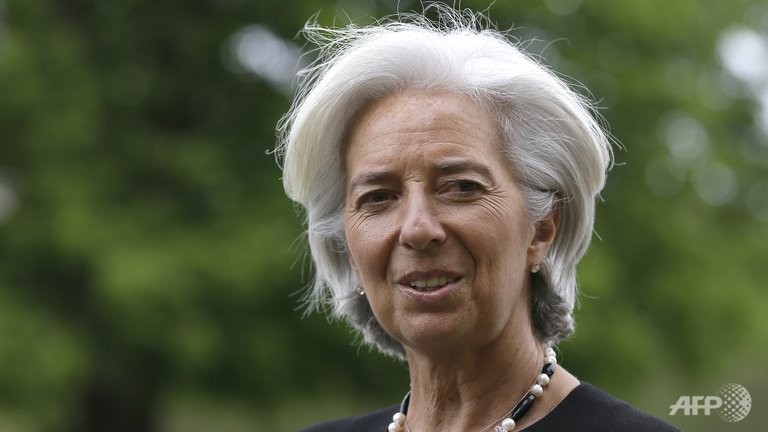IMF's Lagarde warns rising income gap hurts growth

Managing Director of the International Monetary Fund (IMF) Christine Lagarde on May 10, 2013.
(AFP/Alastair Grant)
WASHINGTON: International Monetary Fund chief Christine Lagarde on Wednesday decried rising income disparity, noting its harmful effect on global economic growth.
Lagarde, in a speech on poverty reduction in Washington, said the top 0.5 per cent of the global population holds over 35 per cent of the wealth.
"This has not gone unnoticed: the Arab Spring and 'Occupy movement,' though very different, were motivated in part by discontent with these trends," the IMF managing director said, according to the prepared text.
In the United States, where the Occupy Wall Street movement began in 2011, the richest 1.0 per cent of the population holds 18 per cent of all pre-tax income, compared with a share of 8.0 per cent 25 years ago, she said.
"Rising income inequality is a growing concern for policymakers around the world," she said, adding that the IMF had begun to look more closely at the issue and its effect on the global economy.
Lagarde, speaking at the annual meeting of the Bretton Woods Committee, said that economic stability was crucial for poverty reduction.
"For this reason, the first best contribution that the IMF can make to reducing poverty is to help avoid crises." She noted the global lender had sharply increased resources available to low-income countries and continued to charge zero interest on all concessional lending.
But, Lagarde said, growth in the global economy needed to be paired with income equity to promote stability, calling for "expanding the pie" and "making sure it is distributed more fairly."
"Equality is good for growth, but is growth good for equality? It may be a necessary condition for reducing poverty, but it has not always reduced inequality."
In advanced economies, Lagarde said that the impact of fiscal policy in reducing inequality has been declining since 2000.
"Why? Because many countries have adopted reforms that have reduced progressivity in the tax and spending mix, that is, reduced the generosity of social benefits and lowered income tax rates, particularly at top brackets," she said.
The IMF in recent months has criticised austerity programs and spending reductions undertaken by governments seeking to close fiscal deficits, saying they should be balanced with growth measures.
Policies that can help spread the wealth more fairly include reducing tax exemptions, fighting tax evasion and increasing social spending to reduce poverty, Lagarde said.
An OECD report released Tuesday said the global economic crisis had significantly widened the income gap in the world's leading economies.
The Organization for Economic Cooperation and Development said that income inequality had increased by more over 2008-2010 than during the previous 12 years for the 34-nation group.
After taxes and transfers, the richest 10 per cent of the population in OECD countries earned 9.5 times more than the poorest 10 per cent in 2010, up from nine times in 2007.
"These worrying findings underline the need to protect the most vulnerable in society, especially as governments pursue the necessary task of bringing public spending under control," said OECD Secretary-General Angel Gurria.
What the stars mean:
★ Poor ★ ★ Promising ★★★ Good ★★★★ Very good ★★★★★ Exceptional
Latest News
More News
- Russian President congratulates Vietnamese Party leader during phone talks (January 25, 2026 | 09:58)
- Worldwide congratulations underscore confidence in Vietnam’s 14th Party Congress (January 23, 2026 | 09:02)
- Political parties, organisations, int’l friends send congratulations to 14th National Party Congress (January 22, 2026 | 09:33)
- 14th National Party Congress: Japanese media highlight Vietnam’s growth targets (January 21, 2026 | 09:46)
- 14th National Party Congress: Driving force for Vietnam to continue renewal, innovation, breakthroughs (January 21, 2026 | 09:42)
- Vietnam remains spiritual support for progressive forces: Colombian party leader (January 21, 2026 | 08:00)
- Int'l media provides large coverage of 14th National Party Congress's first working day (January 20, 2026 | 09:09)
- Vietnamese firms win top honours at ASEAN Digital Awards (January 16, 2026 | 16:45)
- ASEAN Digital Ministers' Meeting opens in Hanoi (January 15, 2026 | 15:33)
- ASEAN economies move up the global chip value chain (December 09, 2025 | 13:32)
















 Mobile Version
Mobile Version